Soviet-era stage revived to rival Eurovision
Vietnam crowned winner as Russia casts 'Intervision Song Contest' as answer to the West
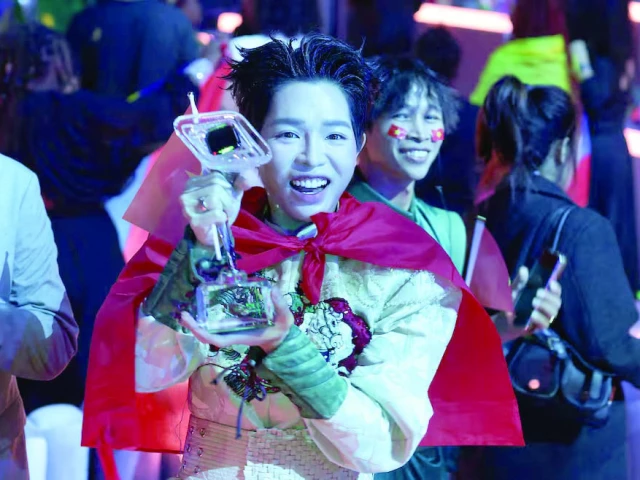
Russia has resurrected a Cold War-era cultural weapon, the Intervision Song Contest, billing it as a family-friendly rival to Eurovision while seeking to expand its influence through music.
With artists from more than 20 countries and ambitions to reach more than a billion viewers, the four-hour spectacle concluded in Moscow with Vietnam crowned the winner. The contest, held at an arena near the Russian capital, marked the culmination of a project relaunched on President Vladimir Putin's orders earlier this year.
First created in the Soviet era as a counterpart to Eurovision, Intervision was revived in February and now returns as part of the Kremlin's wider cultural strategy. Vietnamese singer Duc Phuc, who won her country's version of "The Voice" a decade ago, claimed the top prize with a song inspired by a poem about bamboo.
Fighting back tears, he thanked the audience "for every second" they had spent watching. The prize for first place was 30 million roubles ($360,000).
A jury of international representatives selected the winner, with Kyrgyzstan taking second place and Qatar third. Russia's own entrant, Shaman — real name Yaroslav Dronov — declined to compete for the title, telling judges that as host nation, Moscow should not seek the laurels.
"Hospitality is an inalienable part of the Russian soul... and according to the law of hospitality, I don't have the right to be among those vying to win," he said. Russia has been barred from Eurovision since its offensive in Ukraine, and Intervision is being positioned as its replacement on the cultural stage. Organisers made no secret of the political undercurrent: the show was framed as an antidote to Western "decadence" and as a platform for "traditional family values."
In a video address, Putin praised the contest's "main theme" of respecting traditional cultures and declared, "Today, Intervision is gathering a second wind, while remaining faithful to its traditions." He added that the event signified both cultural exchange and defiance.
The Kremlin's ambition is clear. With participants from countries representing more than half the world's populationincluding Brazil, India and China — organisers hope Intervision will project Russia's message far beyond its borders.
Twenty-three countries were initially due to participate, even including Russia's Cold War rival, the United States. But the US act — Australian-born pop singer Vasiliki Karagiorgos, known professionally as Vassy — pulled out at the last minute. Organisers blamed what they called "unprecedented political pressure from the government of Australia."
No performers from European Union states joined the line-up. Former Soviet republics Uzbekistan and Kazakhstan did, alongside a varied roster from Asia, Latin America, and the Middle East. Each artist performed in their native language, a point of contrast with Eurovision, where English often dominates.
Cuban singer Zulema Iglesias Salazar delivered a spirited rumba, while Qatar's Dana Al Meer — who sang at the opening of the 2022 World Cup — took to the stage once again. Serbia's Slobodan Trkulja dedicated his piece, "Three Roses," to his three daughters.
The opening ceremony blended nostalgia with modernity. Augmented-reality projections of dancers in traditional costume accompanied the parade of contestants, merging Soviet-era staging with futuristic effects.
The contest drew prominent Russian celebrities including Dima Bilan, Eurovision winner in 2008, and Polina Gagarina, runner-up in 2015. American rocker Joe Lynn Turner, formerly of Deep Purple, also appeared as a jury member.
Konstantin Ernst, director general of broadcaster Pervy Kanal, suggested that Intervision could dwarf Eurovision's audience. With participating countries representing 4.3 billion people, he argued, even if a fraction tuned in, the reach would be "an audience without precedent." Eurovision's most recent edition drew a record 166 million viewers.
The broadcast aired live on Russian television and, according to organisers, was also streamed internationally, reaching homes across several continents.
Intervision's history dates back to 1965 in Prague, but the event was suspended after Czechoslovakia's anti-Soviet uprising in 1968. Revived in the 1970s in Poland, it toured various cities across the Communist bloc before fading into obscurity. Now, Moscow is breathing new life into the project, explicitly tying it to its geopolitical vision.
Another distinction from Eurovision is the voting system. There was no public participation; the international jury alone determined the winner. Organisers said this ensured fairness and emphasised artistic merit over popularity.
Looking ahead
The contest's rebirth is not intended as a one-off. At the close of the show, organisers confirmed that Saudi Arabia had agreed to host the next edition in 2026, cementing Intervision's ambitions to expand beyond Russian soil.
For the Kremlin, the competition has become a potent instrument of soft power: part entertainment, part political theatre. For the performers, it remains an international stagealbeit one shaped by Moscow's vision of culture and values.
Whether Intervision can attract the global audiences its organisers dream of remains to be seen. But in the early hours of Sunday, as confetti rained down on Vietnam's Duc Phuc and his bamboo-inspired ballad, Russia could claim a symbolic victory: Intervision was back, carrying echoes of its Soviet past into a very different present.



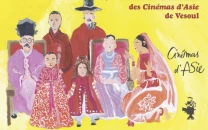
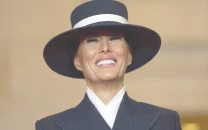
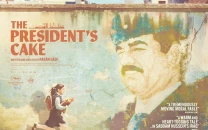
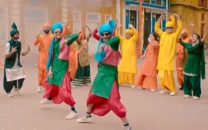












COMMENTS
Comments are moderated and generally will be posted if they are on-topic and not abusive.
For more information, please see our Comments FAQ